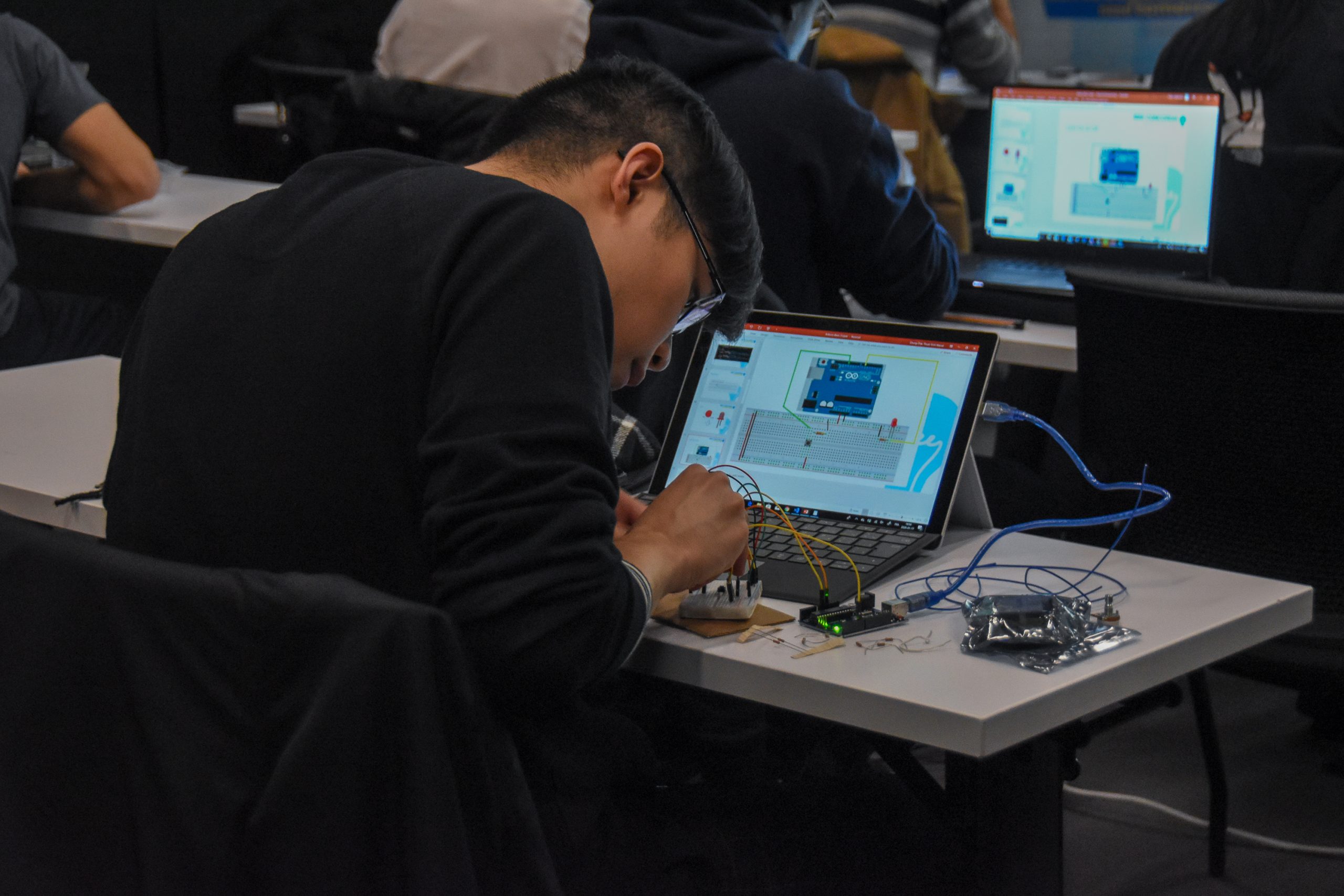Back, whack, and ready to attack–a week of workshops by HackConcordia provides students with new skills.
Concordia’s hacker collective, HackConcordia, hosted various workshops to teach students and the public hacking skills this past week.
Hack Week is a way for students to prepare for the annual ConUHacks V, a hackathon at Concordia, where students come from all over North America to compete in a 24-hour contest. Participants get to create whatever they can imagine––hackathon projects can have any theme as long as it involves code.
“No one ever leaves a hackathon without learning something new,” said Zach Bys, the co-president of HackConcordia and a software engineering student.
Bys has participated in Hackathons for four years, and decided to help organize them because he wanted to give back to the collective. “[Hackathons] have done a lot for me in my career. Most of the skills I have now, that helped me get jobs, I’ve learnt those at different Hackathons,” he said.
ConUHacks has been taking place since 2014, with its first competition having roughly 300 participants. Bys said this year, there are over 750 participants total, with around 40 per cent being Concordia students.
With the increase in participants, Concordia Hackathon has gained over 38 sponsors, such as EB games, Telus, and Shutter Shock. Some sponsors host their own competitions during the hackathon and hand out various prizes.
Bys explained that his favourite creation by students so far was an app that used augmented reality to create live audio captioning, which creates live text when people talk, usually with the intention of helping people with a hearing impairment. Augmented reality is a technology that allows visual objects to interact with reality, such as the popular Pokemon Go app, where digital creatures interact with reality.
Another creation that stood out to Bys was a smart fridge that catalogued all of its contents, and then suggested recipes that could be made with the available food.
At Hackathon, you can let your creativity run wild,” said Bys, who explained that at work or school, it’s unusual for people to have a chance to be imaginative and innovative. “[At Hackathon], you can build anything you want and use technologies that you never had a chance to use at school, like augmented reality.”
Bys stated that with new advances in technology, new programming has become much more approachable for people. Over 10 years ago, it was incredibly difficult to create things with augmented reality, but now it is possible to create complex projects in less than 24 hours, Bys said.
David Molina, a computer engineering student at Concordia, participated in one of the workshops HackConcordia organized. It was hosted by the Institute of Electrical and Electronics Engineers (IEEE) Concordia, a student branch of the electronics company, IEEE. The workshop focused on learning how to create an arduino, an open-source electronic platform that takes in information––such as a finger on a button or an online message––and uses that information to command actions like turn on a motor, a light, or publish a message. In simple terms, it is a very basic robot.
It was Molina’s first time at a HackConcordia event and, while he specializes in designing and building robots in his program, this was the first time he was able to program one.
“It might seem big, but you just have to start somewhere,” Molina said, explaining that anyone can learn how to hack, and the events that HackConcordia are a great way to dip your toes in. “You just have to start small and take baby steps, and then you’re off to building robots.”
Concordia’s Hackathon is on Jan. 25 and the results will be displayed in JMSB’s atrium on Jan. 26.
Photo by Cecilia Piga
